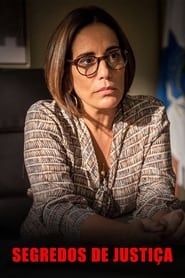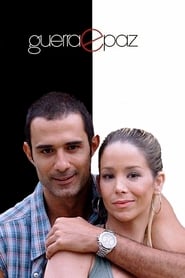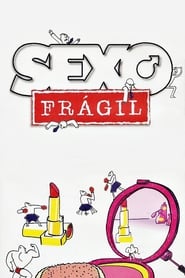Tv Globo TV Series - Page 20
-
Malhação de Verão
1996
Malhação de Verão
1996
-
Segredos de Justiça
2016
Segredos de Justiça
2016
-
As Noivas de Copacabana
1992
star 6.5Donato Menezes, a renowned art restorer from Copacabana is also a serial killer obsessed with women in their bridal gowns. His crimes follows the same pattern: he seduces and then kills the victim during the sexual act, always when they're wearing the gown. -
Avenida Paulista
1982
Avenida Paulista
1982
-
Anos Rebeldes
1992
star 7.6Mini series about the 1960s in Rio de Janeiro, when a politically engaged student falls in love with a left wing journalist's daughter who doesn't care for politics. The romance follows 15 years of Brazilian history, since President João Goulart deposition by military reactionary forces, until the first signs of restoration of democracy, in the 1980s. -
Amizade Colorida
1981
Amizade Colorida
1981
-
Mister Brau
2015
star 8.5Follows the unconventional lives of a Brazilian pop artist who got out of the streets to reach stardom and his manager-wife-choreographer. -
Retrato de Mulher
1993
Retrato de Mulher
1993
-
War and Peace
2007
star 7.5The series follows Barbara Palermo, a frustrated writer, and Pedro Guerra, a grumpy cop. Barbara and Peter met in high school when Barbara fell in love with him. She was an ugly, insecure girl who had always dreamed of being a great writer, while Pedro was a handsome guy, volleyball player, and flirtatious. After high school, each went their own way and they never met. Barbara eventually became a great writer, but under the pseudonym Paloma Paz, and sold hundreds of newsstand books. Pedro dreamed of joining the Brazilian volleyball team, but after an accident, his career went into decline, and he became a lonely and very closed man. The two meet again when an unexpected event involves both of them. -
A Máfia no Brasil
1984
A Máfia no Brasil
1984
-
Sexo Frágil
2003
star 7.6Alex, Edu, Fred and Beto are four friends who live torn between the role of man in society and the need to be more sensitive. They try to understand the female head and put themselves in the place of the opposite sex. They appear to be very safe, but feel totally lost around safe, independent women. -
Marina
1965
Marina
1965
-
Rabo de Saia
1984
Rabo de Saia
1984
-
Uma Rosa com Amor
1972
Uma Rosa com Amor
1972
-
Dona Flor e Seus 2 Maridos
1998
star 4.3Florípedes, Dona Flor, a cooking teacher, loses her husband Vadinho, an incorrigible trickster, on Carnival Sunday. In deep mourning, tearful, she recalls the ups and downs of that relationship. But, as she is still young and beautiful, she attracts the attention of the very correct pharmacist Teodoro, with whom she marries. -
Sai do Chão!
2014
Sai do Chão!
2014
-
A Jornada da Vida
2014
A Jornada da Vida
2014
-
Second Call
2019
star 8.2'Second Call' focuses on the resilience stories of teachers and students in a complex public education system. After some time off from teaching, Lúcia Helena returns to the classroom, now giving night classes to teenagers and adults. Along with other three teachers and the principal, she faces institutional adversities and the lack of appreciation without flinching. The conflicts involve both the faculty and the student body and, in this scenario, Education emerges as a hope, reminding everyone that it is never too late to have a second chance.



















